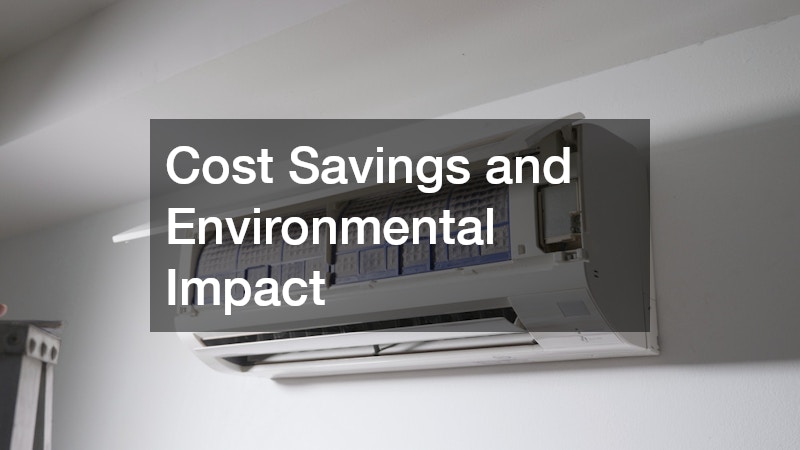Understanding commercial HVAC systems is crucial for business owners. An efficient HVAC system is pivotal not only for the operational efficiency of the business but also for maintaining a comfortable environment for employees and customers.
HVAC systems help regulate temperature and air quality, directly impacting employee productivity and customer satisfaction. As a business owner, recognizing the essential role of HVAC systems can contribute significantly to your company’s success.
Moreover, investing time to understand your HVAC system can lead to significant energy savings and operational cost reductions. It’s not just about immediate comfort, but the long-term benefits such systems can bring to your business.
Why Regular Maintenance of Commercial HVAC Systems is Important
Benefits of Regular Maintenance
Regular maintenance of HVAC systems extends their lifespan, ensuring that they continue to operate efficiently for years. By scheduling routine checks, businesses can avoid unexpected system failures that can lead to costly repairs.
Moreover, well-maintained systems consume less energy, leading to reduced utility bills. This efficiency not only benefits your bottom line but also minimizes your company’s environmental footprint.
In addition, consistent maintenance helps in early detection of potential issues, allowing for timely interventions. This proactive approach saves money in the long run and ensures uninterrupted business operations.
Consequences of Neglecting Maintenance
On the flip side, neglecting regular maintenance can lead to several adverse outcomes. Without proper upkeep, HVAC systems become less efficient, leading to increased energy consumption and higher utility bills.
Furthermore, ignoring maintenance can result in frequent and unexpected system breakdowns, which can disrupt business activities. Such unplanned downtime can be detrimental, affecting employee productivity and customer experience.
In the worst cases, neglected systems may require complete replacements, resulting in significant financial expenditure. This emphasizes the critical role that regular maintenance plays in ensuring business continuity and cost management.
Choosing the Right Commercial HVAC System for Your Business
Factors to Consider
Choosing the right HVAC system requires consideration of several key factors. The size of the commercial space is fundamental, as it determines the system’s capacity and efficiency requirements.
Budget constraints also play a vital role, as they dictate the range of systems a business can afford. It’s essential to balance upfront costs with long-term operating expenses to make the most economical decision.
Additionally, the specific needs of your business, such as industry regulations and climate conditions, should influence your choice. Tailoring your HVAC system to your unique business requirements ensures optimal performance and efficiency.
Comparing Different HVAC Systems
Various types of HVAC systems are available for commercial use, each with unique advantages and disadvantages. Split systems, for example, are highly effective for small to medium-sized businesses due to their flexibility and scalability.
On the other hand, packaged systems are ideal for locations with limited indoor space, as they house all components externally. For larger enterprises, centralized systems offer efficient temperature management over extensive areas.
It’s crucial to understand these options and evaluate which system aligns best with your business needs and constraints. This ensures that you not only meet your current requirements but also account for potential future expansions.
What Are Energy-Efficient HVAC Solutions for Commercial Buildings?
Modern Energy-Efficient Technologies
The evolution of energy-efficient HVAC technologies has provided numerous opportunities for businesses to reduce energy consumption. Smart thermostats allow for precise control of heating and cooling, optimizing energy use based on occupancy and time of day.
Variable refrigerant flow (VRF) systems adjust to fluctuating air conditioning demands, enhancing efficiency and performance in varying operational conditions. Geothermal systems utilize the Earth’s natural heat, offering a sustainable alternative to traditional HVAC systems.
Embracing these modern technologies not only supports energy savings but also aligns with environmental sustainability goals. These innovations highlight the ongoing advancements in HVAC systems catering to contemporary business needs.
Cost Savings and Environmental Impact
Implementing energy-efficient HVAC solutions can significantly reduce operational costs by lowering utility bills. This profitability directly contributes to an improved bottom line, which is a priority for any business owner.
Beyond financial benefits, these solutions also help businesses reduce their carbon footprint, supporting broader environmental sustainability efforts. This dual impact fosters a positive public image, aligning your business with global initiatives to combat climate change.
Consequently, investing in energy-efficient HVAC systems is not just a strategic business move but a commitment to corporate social responsibility. These initiatives demonstrate that commercial success can go hand-in-hand with environmental stewardship.
Understanding the complexity and importance of commercial HVAC systems is indispensable for business owners. Regular maintenance, informed system choices, and adoption of energy-efficient technologies are key to leveraging HVAC systems for operational success.
By prioritizing these elements, businesses can enjoy improved efficiency, reduced costs, and enhanced comfort for employees and customers. Ultimately, these efforts support long-term sustainability, positioning your business for continued growth and development.
The investment in commercial HVAC knowledge and infrastructure is an investment in your company’s future. With the right strategies, you can ensure your business remains competitive and environmentally conscious in today’s world.

